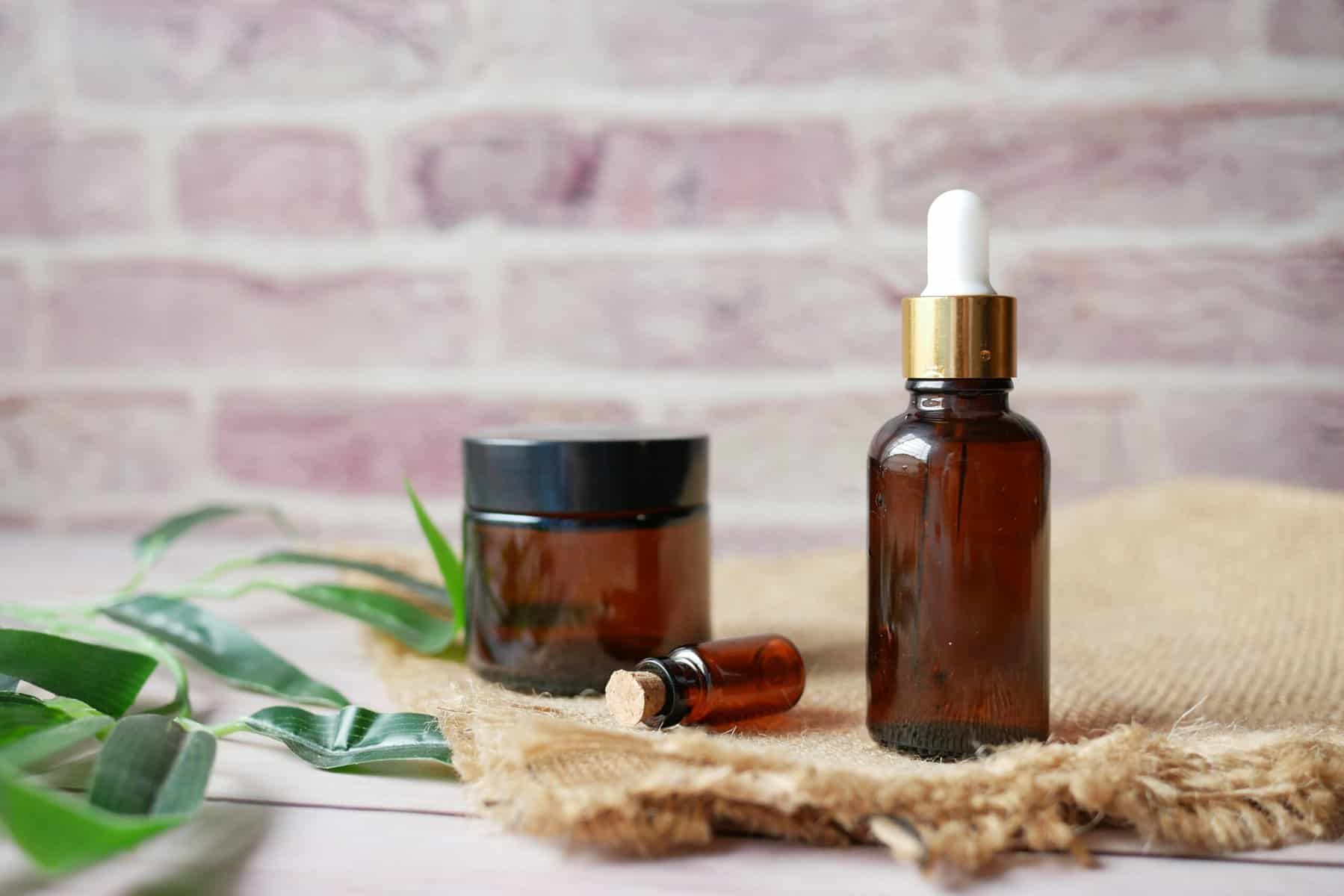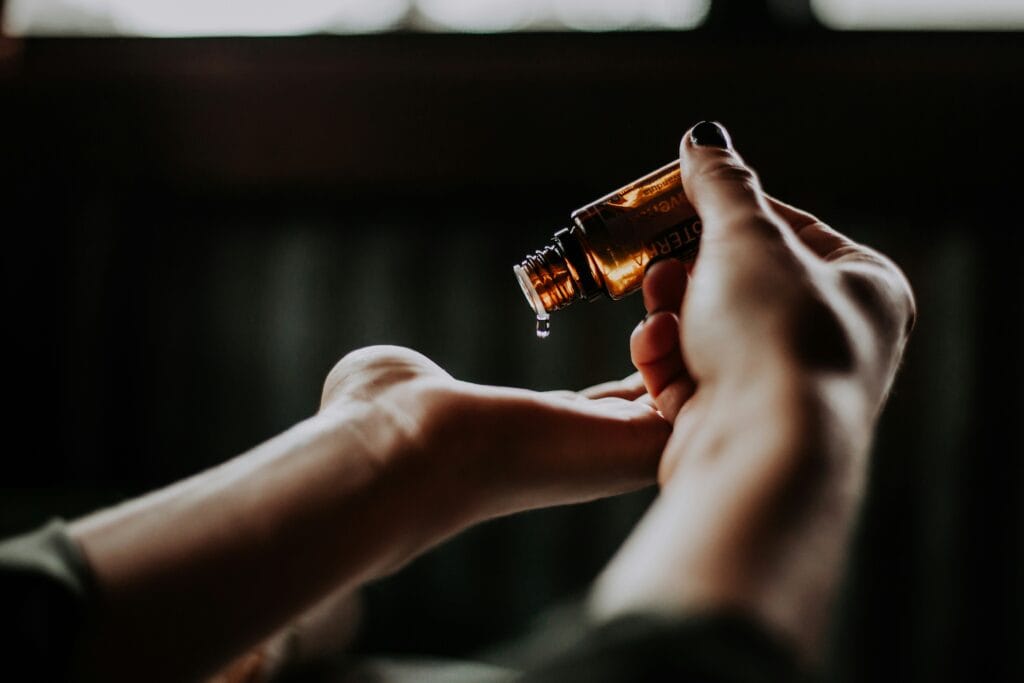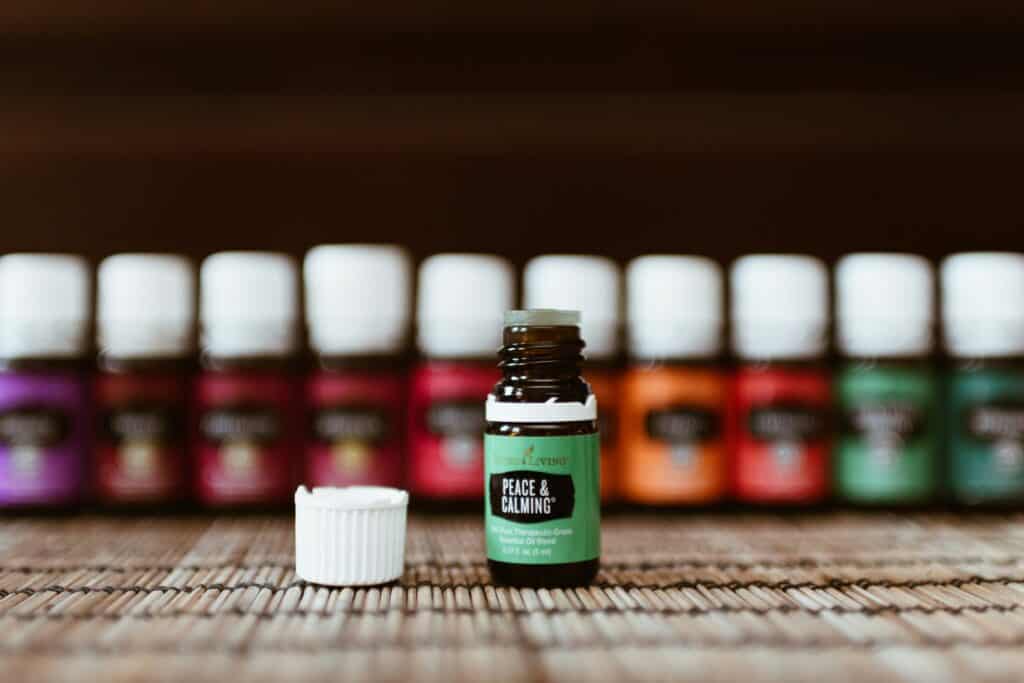
Introduction to Essential Oils for Skin Repair
Essential oils have surged in popularity as natural remedies for skin repair, riding the wave of a broader trend towards organic and plant-based skincare products. These potent plant extracts, ranging from tea tree oil with its antibacterial properties to lavender oil known for its soothing effects, offer a personalised approach to skincare. They tap into ancient wisdom, echoing practices from the era of the Egyptians, who first harnessed the power of plant oils for beauty and healing. Essential oils represent the joining of tradition and modern skincare science with various oils to address different skin concerns.
Understanding Your Skin Type
Understanding your skin type is crucial before diving into essential oils for skin repair. Each demands a unique approach: oily, dry, sensitive, or acne-prone. Essential oils offer various benefits, from tea tree oil with its antibacterial properties to lavender oil, which is known for soothing skin irritation. Yet, their efficacy hinges on matching them to your specific skin needs. Jojoba oil, for example, mirrors the skin’s natural sebum, making it perfect for almost all types, while coconut oil’s hydrating properties are essential for dry skin. Conducting a patch test ensures you avoid allergic reactions, seamlessly integrating these natural oils into your skincare routine. Embracing this step steers you toward the best essential oil blend, custom-fit for your skin’s unique characteristics.
Fundamental Essential Oils and Their Skin Repair Benefits
Tea tree oil has garnered praise for its antibacterial properties, making it a powerhouse against acne-prone skin. It will have tackled blemishes long before you realised they were a threat. Lavender oil, cherished for its anti-inflammatory effects, soothes redness and irritation with finesse. It has comforted sensitive skin, leaving a trail of calmness in its wake. Frankincense oil, a treasure from ancient herbal medicine, promotes the appearance of youthful skin by reducing the appearance of wrinkles and scars. It has been a secret behind radiant skin, smoothing imperfections with age-defying prowess.

Essential Oils for Specific Skin Conditions
Finding suitable essential oils for your skin type might seem daunting. Yet, certain plant extracts have shown promising results in managing and even repairing skin conditions. Lavender and chamomile oils work wonders for dry skin due to their hydrating and anti-inflammatory properties. They soothe irritation and bring moisture back to thirsty surfaces. Tea tree oil and clary sage prove invaluable for oily and acne-prone skin as they contain antibacterial and antimicrobial properties, targeting breakouts and reducing sebum production. Jojoba and rosehip oil are gentle yet effective, serve sensitive skin well, and support skin barrier restoration without invoking an allergic reaction. When properly diluted with carrier oils like coconut or argan oil, these natural oils offer a tailored skincare routine that can significantly improve skin health.
Safety and Preparation: The Dos and Don’ts
Embarking on your journey with essential oils demands precaution. Patch tests emerge as indispensable, safeguarding you against potential allergic reactions. Placing a diluted sample on a small skin area will unveil any sensitivity. Equally crucial is the dilution process. Utilising carrier oils such as jojoba, coconut, or argan oil mitigates the risks of irritation. These actions, perhaps superficial, are paramount for ensuring a harmonious interaction between your skin and the selected natural oils. They pave the way for a beneficial and safe experience, allowing the oils’ anti-inflammatory and antibacterial properties to work without adverse effects.
Integrating Essential Oils into Your Skincare Routine
You will first need to select a carrier oil to initiate your journey into incorporating essential oils into your skincare regime. Jojoba or coconut oil stands out as exquisite choices due to their nourishing properties and ability to minimise risks of skin irritation. Next, for topical application, a crucial step involves performing a patch test to ensure no allergic reaction occurs, safeguarding your skin’s health. Should this test prove successful, blend a few drops of your chosen essential oil—tea tree, lavender, or frankincense—with the carrier oil before gently applying it to the skin.
Creating face masks infused with essential oils can be a therapeutic and enriching experience for those inclined towards DIY. Blend natural ingredients like avocado, honey, or oatmeal with a small amount of your preferred essential oil. This revitalises your skin and saturates it with the benefits these natural oils offer, from anti-inflammatory effects to antibacterial properties, ensuring your skincare routine is as effective as natural.
Carrier Oils: Maximising Benefits and Minimising Risks
Essential oils hold immense benefits for your skin. However, direct application may lead to irritation or allergic reactions. Argan oil, olive oil, and sweet almond oil are perfect vehicles. These carrier oils have nourishing properties, enhancing the skin’s absorption of essential oils. They minimise risks, allowing for a soothing experience. Argan oil is rich in anti-inflammatory properties and essential fatty acids, making it ideal for repairing the skin barrier. Olive oil has been used since the time of the ancient Egyptians for its hydrating and antioxidant effects. Meanwhile, Sweet almond oil is known for improving skin tone and reducing the appearance of scars. Together, these natural oils facilitate the safe and effective delivery of the healing benefits of essential oils to your skin.

Beyond the Surface: Lifestyle Tips for Enhanced Skin Health
Achieving glowing skin extends beyond surface treatments such as essential oils. Attention to diet plays a critical role. Foods rich in antioxidants, like pomegranate and sunflower seeds, counteract oxidative stress, known to age skin prematurely. They work hand in hand with essential oils, enhancing your skin’s natural defence against environmental damage.
Hydration cannot be overlooked. Drinking enough water daily ensures that both your body and skin remain hydrated. This practice pairs perfectly with moisturising essential oils like jojoba or argan, creating an internal-external hydration sync. Together, they maintain your skin’s elasticity and minimise the appearance of fine lines.
Lastly, managing stress through mindful practices directly impacts skin health. High-stress levels can exacerbate skin conditions, leading to imbalance. Techniques such as yoga and meditation reduce stress and complement the calming properties of lavender or chamomile oil. Ultimately, these lifestyle choices cushion the rejuvenating effects of essential oils, helping you achieve healthier, more resilient skin.
Where to Find Quality Essential Oils
Finding high-quality, pure essential oils requires meticulous research. You must ensure the brands you consider incorporate rigorous testing methods. Look for suppliers that are transparent about their sourcing and distillation processes. This information often indicates a commitment to quality. Online forums and social media groups dedicated to essential oils offer insightful reviews and personal experiences, guiding you toward reputable sources.
Reading product labels carefully cannot be overstressed. Quality essential oils list the plant’s botanical name, oil purity, and sometimes the extraction method. High-quality oils rarely mention “fragrance” or “perfume,” which suggests additives. Additionally, opting for essential oils sold in dark glass bottles helps protect the contents from light degradation, preserving their healing properties. Remember, the best essential oils reflect their natural origins without the intervention of harmful chemicals or synthetics. Rocky Mountain Oils, Young Living, and doTERRA have garnered respect in the essential oil community for their stringent quality controls and user trust.
In your quest for the ideal essential oils for skin repair, prioritise purity and plant integrity. Doing so ensures that your skincare routine will harness the fullest potential of nature’s offerings for skin health.
A Final Thought on Natural Skin Renewal
Embarking on a journey with essential oils for skin repair has illuminated a path of natural healing and rejuvenation for your skin. These potent plant extracts, ranging from the well-known tea tree oil and lavender essential oil to the powerful antioxidant properties of rosehip and frankincense oils, have stood the test of time, revered since the days of Ancient Egyptians for their myriad benefits. Leveraging these oils, whether it’s to combat free radicals, improve the appearance of fine lines, or soothe inflammation, offers a holistic approach to skincare that many have found transformative.
Integrating these oils into your skincare routine through topical application or dilution with carrier oils like jojoba, argan, or coconut oil requires understanding their properties and a mindful approach to their use. Performing a patch test, recognising any allergic reactions, and consulting a professional if you have severe skin conditions are crucial steps to ensure your skin’s health and safety. Remember, the journey to revitalised skin does not yield overnight results. It necessitates patience, consistency, and a commitment to listening to your skin needs and adjusting your approach as they change over time.
In conclusion, essential oils offer a promising avenue for nourishing and repairing skin naturally. Treating your skin with the care it deserves and choosing the suitable oils for your skin type and concerns can unlock the door to healthier, more vibrant skin. Remember that natural skin renewal is a marathon, not a sprint; your patience and attentiveness will be well worth the rewards.






